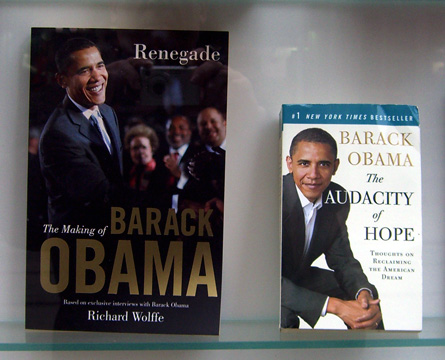
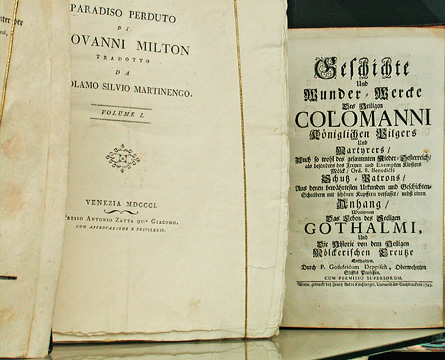
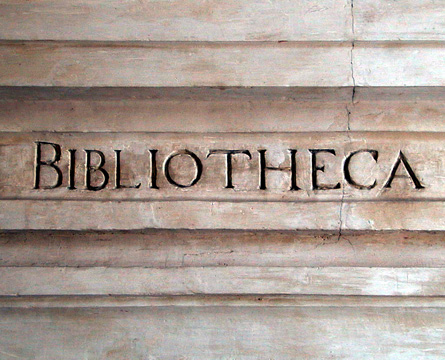
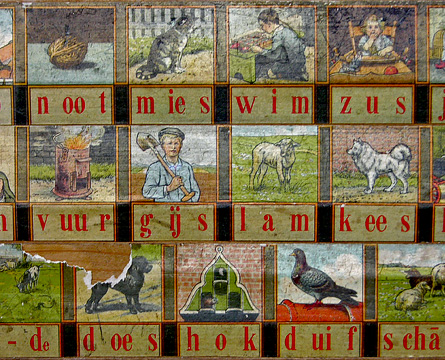
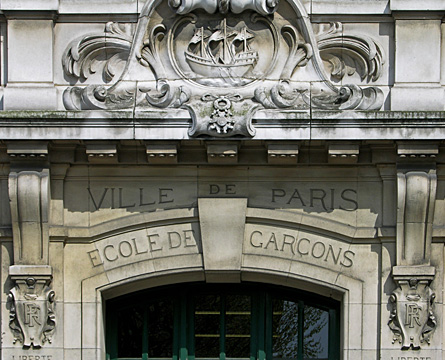
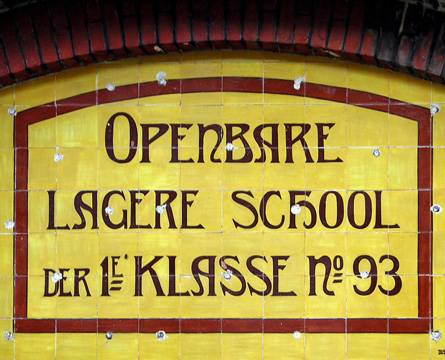
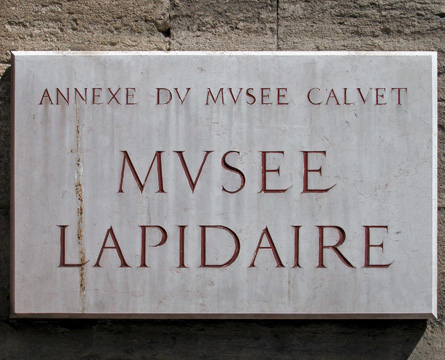

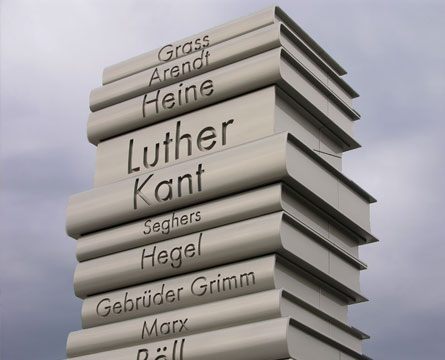

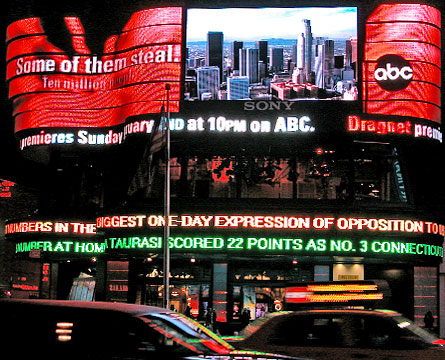
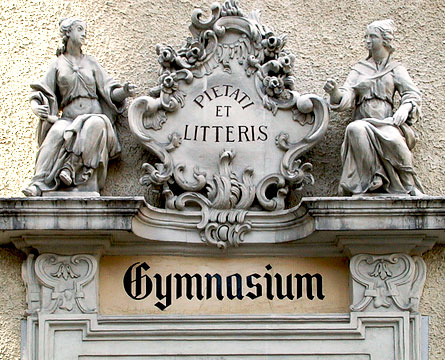
Literature about Barack Obama, Bookstore, Vienna, Austria
Antiquarian, Vienna, Austria
Library, Vittoriosa, Malta
Teaching Aids, Amsterdam, The Netherlands
City of Paris, Boys School, France
Public elementary school of 1st Class, Amsterdam, The Netherlands
Lapidary Museum, Avignon, France
Biblioteca Pública, Salamanca, Spain
Monument of Books, Berlin, Germany
Histoire de Paris, Information Column, Paris, France
Info Screen, New York, USA
Pietati et Litteris, Grammar School, Vienna, Austria

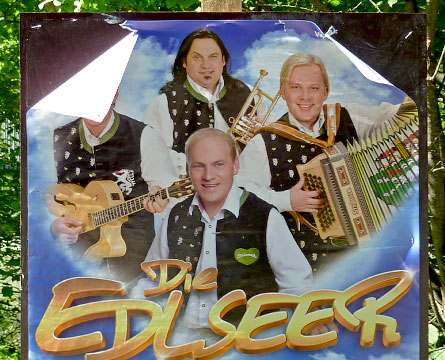


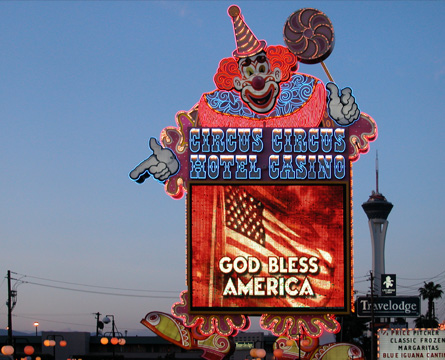
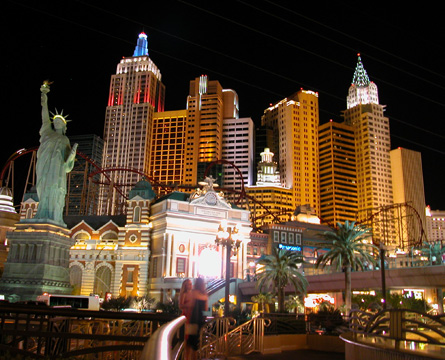
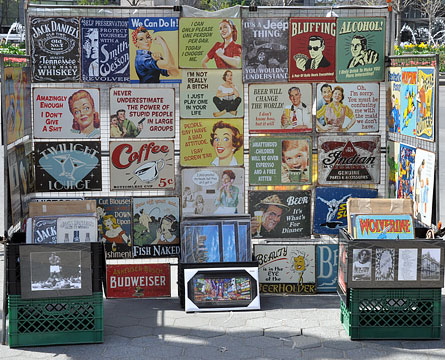
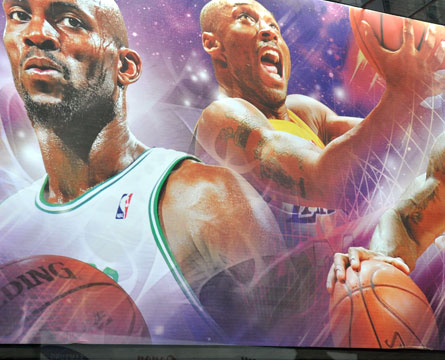
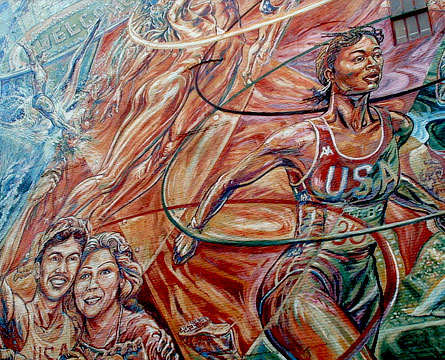
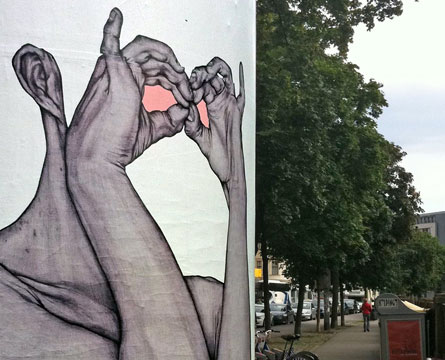
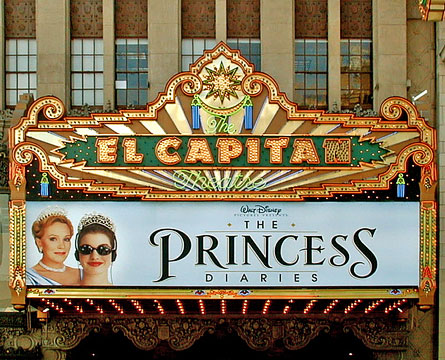
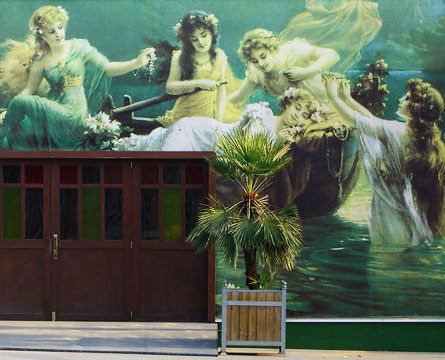
Disney Store, New York, USA
Die Edlseer, Folk Music Poster, Dornbirn, Austria
Mini Mouse, Amsterdam, The Netherlands
Virgin America, New York, USA
God Bless America, Circus Circus Hotel Casino, Las Vegas, USA
New York New York Hotel Casino, Las Vegas, USA
Street Trader, New York, USA
Advertising, New York, USA
Wall Painting, Los Angeles, USA
Art Festival Poster, Vienna, Austria
The El Capitan Theatre, Los Angeles, USA
Music and Cabaret in the House of Pleasure, Bregenz, Austria
Values in which we believe
"In God we trust" was adopted as the official motto of the United States and appears on their paper currency. Money is also a symbolic capital that gains value only through faith.
Today, not all people believe in one God who created the world in a final form. We can observe that the world is constantly changing and gets also modified by humans. In which direction does these changes proceed. Wins at the end of the day always the better over the worse, as some think, or develops the world, through human activities toward disaster and demise?
Companies are increasingly taking on the task of developing values, to provoke emotions that are perceived as meaningful. Market-Communication loves to use the efficient form of taglines, slogans and claims: "Free driving for free citizens", "Just do it", "Money makes you rich", "Open your mind", "Think different", "Nothing is impossible", "The comparison makes sure", „Have a break …“. Concise sentences, as a property of brands, are anchored in our minds. Even Claims, with which we disagree, may evoke certain associations.
If people judge something to be true, the resulting actions causes an adaptation of the world to the convictions. For this reason, corporations drive a big effort to produce a world of images, where consumption is the one and only solution to all problems. As the wishes of the people are getting always more accurately satisfied, the cycle of the markets is almost unlimited popular. But the system gets in trouble, when the circulation of money is increasingly decoupled from ordinary employment. The idea of a self-regulating system, has so far proved to be a mistake, because not all interests are taken into account.
What supports our beliefs?
People have the tendency to stubbornly hold on to solutions once found, even if the circumstances have changed fundamentally and the successful application of the rules is impossible. What causes an sticking to traditional ideas about reality? Images of reality are usually based on a particular concept of order. If frequent events are experienced as coherent, they are regarded as true. We consciously reduce our repertoire of solution methods, in order not to have to choose among endless possibilities. We constantly try to tell each other how the world should be seen. Everyone's world is and will remain a mental construction. We always think in fictions. We rely on assumptions that we never called into question. The visible signs in our surroundings serve us to confirm our prejudices. We use them as a kind of blinders. We usually do not want to admit that other people interpret the same signs in a completely different way.
As individuals we are no getting wiser, but the society as a whole accumulates more and more knowledge. Compared with the accumulated experience of mankind, the knowledge of the individual remains limited. An increasing specialization creates the risk, that significant correlations can no longer be perceived. To convince people today, we have to use economic arguments. What pays off, needs no further justification. The human sciences therefore now considered as useless.
The search for happiness leads inevitably to disaster. If wishes do not come true, we are desperate. If wishes come true, they turn out to be a disappointment. If we're lucky, we wake up and realize that we are dreaming. Feelings activate the energies we need to become active. In a secular world, the idea of being excluded from pleasure, seems to be the hell. We are responsible for our happiness. However, what makes us happy? In this issue we receive a variety of answers. To whom shall we give our faith?

